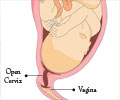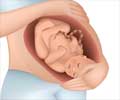The risk of a pregnancy ending in a miscarriage, for a couple, appears to rise along with the father's age, irrespective of the age of the mother.
The risk of a pregnancy ending in a miscarriage, for a couple, appears to rise along with the father's age, irrespective of the age of the mother according to a recent report by researchers in the journal Obstetrics and Gynecology.
They conducted their study on nearly 14,000 women in Jerusalem who were pregnant between 1964 and 1976, about 1500 of whom suffered a miscarriage. They were compared to the more than 12,000 study participants who delivered a baby. The researchers found there was an increased risk of miscarriage of about 60 per cent when the father was 40 or older than when he was 25 to 29 years old.In addition age seemed to play an important role even for men in their 30s. Miscarriage risk was about three times greater in men between the ages of 35 and 39 than in men younger than 25.
While mother’s age is a well known factor in miscarriage the risks reported in this research were all independent of the mother's age which has only proved that like women, men have a biological clock.
Although it is true that men do produce new sperm continually and can father children even in the later years of their life, research has shown that fertility in men starts to gradually decline at a relatively young age. Also older fathers are more likely to have children with birth defects.
One recent study had found that men gradually lose their ability to have a child after the age of 40, similar to a woman's fertility decline after age 35, while another study confirmed that genetic abnormalities in sperm steadily become more common as men age.
First trimester miscarriages primarily occur because of genetic anomalies in the fetus, which could explain the risk tied to paternal age.
Advertisement
According to lead researcher, Dr Karine Kleinhaus, who was with the Columbia University School of Public Health in New York at the time of the study, "As child-bearing is increasingly delayed in Western societies, this study provides important information for people who are planning their families."
Advertisement











